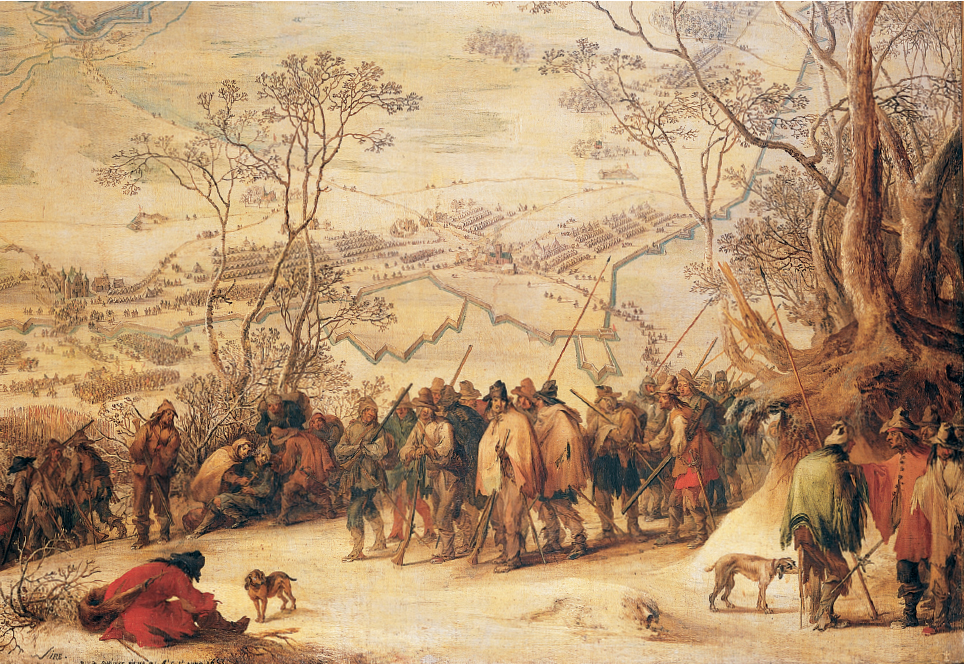Why did France rise and Spain fall in this period?
KKINGS IN ABSOLUTIST STATES asserted that they were responsible to God alone. They claimed exclusive power to make and enforce laws, denying any other institution or group the authority to check their power. France’s Louis XIV is often seen as the epitome of an absolute monarch. In truth, his success relied on collaboration with nobles, and thus his example illustrates both the achievements and the compromises of absolutist rule.
As French power rose in the seventeenth century, the glory of Spain faded. Once the fabulous revenue from American silver declined, Spain’s economic stagnation could no longer be disguised, and the country faltered under weak leadership.

Spanish TroopsThe long wars that Spain fought over Dutch independence, in support of Habsburg interests in Germany, and against France left the country militarily exhausted and financially drained by the mid-